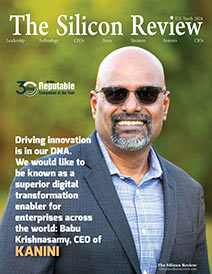>>
Technology>>
Networking>>
Linux Foundation is all equipp...Linux Foundation is all equipped to boost its storage and networking data plane
The Silicon Review
15 Febuary, 2016
The Linux Foundation continues to think big. It became a hub for containers by spearheading the Open Container Project and the Cloud Native Computing Foundation, and it has pushed to make APIs self-standardizing. Now, it’s kicked off yet another industry-wide open source initiative: the Fast Data Project. The idea of “an I/O services framework for the next wave of network and storage software” (per the Foundation) may not sound as vital as protecting core Internet infrastructure or making it simpler for Web server admins to support HTTPS. But on closer inspection, FD.io is in line with the Foundation’s ambitions to nurture the future Web.
FD.io leverages the DPDK (Data Plane Development Kit), a set of processor-agnostic libraries and drivers designed for high-performance data packet processing. The ultimate goal is to create an aggregation of projects that can be used out of the box for virtual routing/switching in a variety of scenarios. The Foundation wants to expand FD.io into a substrate that can be used for all manner of “critical IO services for network and storage traffic.” FD.io’s initial release already includes a management agent for OpenDaylight (another Linux Foundation project), and future releases will support other management agents and for software-defined networking. One of the Linux Foundation’s ongoing aims is to have open source development and standards development more closely resemble each other. Open standards would be embodied in open source code that’s a living entity, instead of requiring a committee to produce a specification and then write code to fulfill it. FD.io could approach the question from a new angle. High-throughput, low-latency I/O isn’t the problem — rather, the issue is elegant and tight integration as part of a whole stack, as well as common avenues to managing the stack and building around it. Drafting a standard would take too long; instead, it makes more sense to have the standard be a piece of software itself.
It’s tough to know how this concept will be affected by what some see as the foundation’s drift toward greater control by for-profit corporate members. The Linux Foundation recently enacted changes to its bylaws, removing a way to elect board members through individual affiliates. Foundation chairman Jim Zemlin responded, stating that the changes did not alter the structure of the foundation’s board. Steven J. Vaughan-Nichols at ZDNet was not surprised that the foundation might be falling under the control of corporations rather than private individuals, but still maintained “there should always be a place for individuals rather than corporations to have their say in The Linux Foundation’s leadership.”









